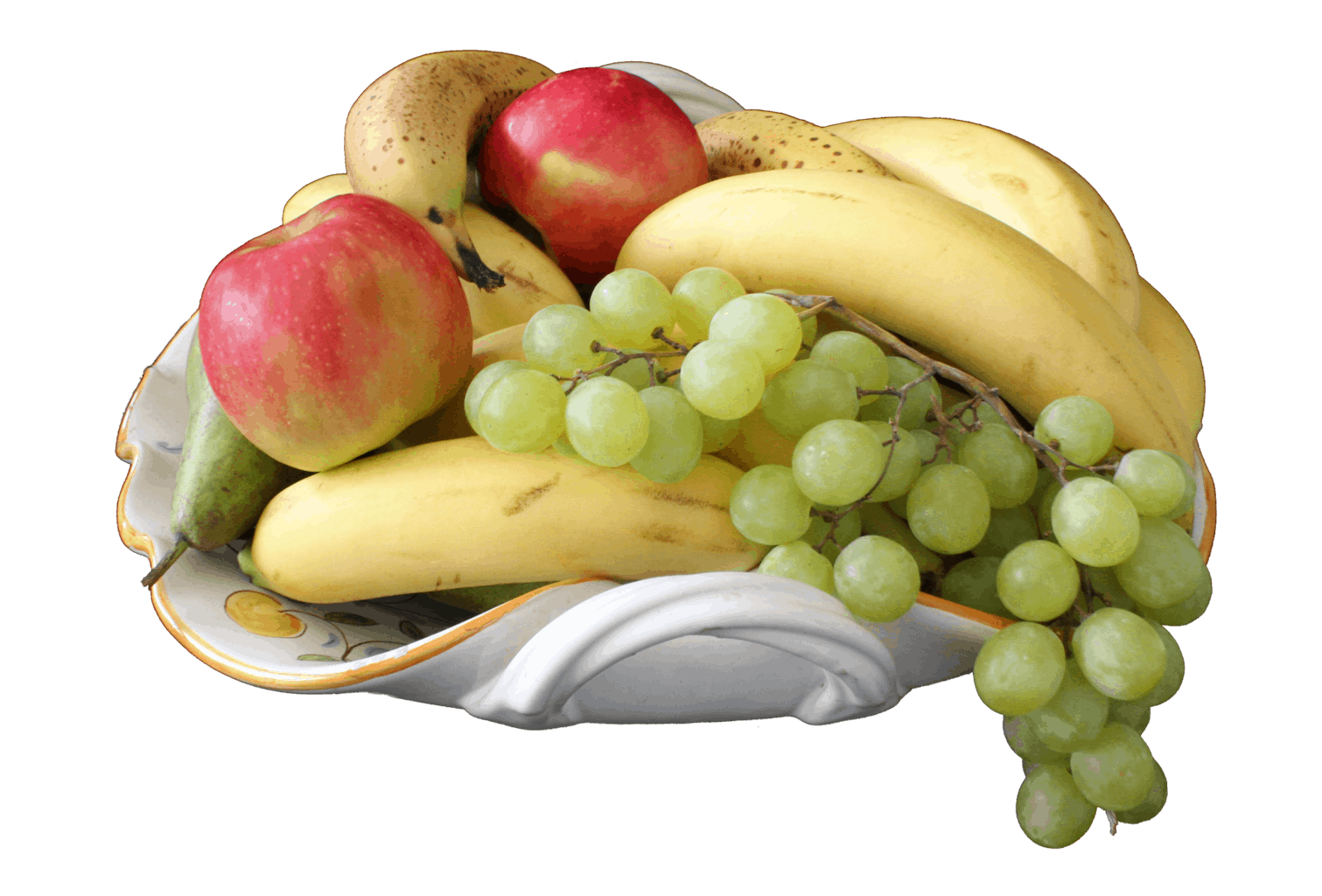- PhentermineLearn more about phentermine and how to get the most from your weight loss journey.
- ResourcesAdditional information and tools to help you make the most of your effort.
- AlternativesLearn more about the most popular weight loss medications and science-backed supplements
How Potassium Can Help With Weight Loss
Published on December 11, 2024

Ever seen how all food labels seem to have a crush on potassium and sodium? Curious about why these minerals turn heads when it comes to our health chat? Maybe, you’ve caught whispers of potassium hanging out in weight loss conversations.
Potassium is extremely important for a number of different bodily functions. Guess what, there is something called the potassium weight loss mechanism! Read on to find out more.
What is potassium?
Potassium is one of the minerals that are essential for the proper functioning of our body (1). Along with sodium, magnesium, and chloride, it is one of the most important electrolytes. Electrolytes are chemical compounds that contain a small electrical charge or potential. They are essential for the functions of muscles, including the heart. Other bodily functions, such as blood pressure regulation, also depend on potassium (1).
Therefore, potassium is one of the essential macro elements that significantly affect the functioning of our heart muscle, as well as the functioning of the entire muscular and nervous system. When talking about dietary potassium intake, we usually refer to the potassium we get from foods and supplements.
The blood level of potassium should be constant, and it is regulated by the so-called “bark” of the adrenal gland, i.e. adrenal cortex (1).
Where do we get potassium from?

The main source for your potassium intake lies in vegetables. There are also several fruits that can help with potassium intake. Due to the fact that it is more or less processed, industrial food generally has less dietary potassium. . That’s why many people today suffer from problems related to low dietary potassium consumption.
Potassium intake is not the only fact to consider here. This electrolyte works together with other minerals in the body, with a particular focus on magnesium. Increased potassium intake also requires an adequate concentration of magnesium to avoid complications. It is also important to consider factors that can cause a reduction in the efficiency of dietary potassium we obtain. A high intake of alcohol, sugar, coffee, and salt can all reduce the level of potassium in your body.
Health benefits of potassium
The basic task of potassium is to regulate body fluids and blood pressure (1). Together with sodium, it contributes to the balance of pH in our blood, as well as in the tissues. Also, it controls the electrical activity of the heart and other muscles.
Potassium is very important for cellular biochemical processes and metabolism. Most importantly, it is involved in the process of conversion of glucose to glycogen stored in the liver as a stock of energy.
In general, dietary potassium reduces the risk of many diseases. As it contributes to lowering blood pressure, it reduces the risk of getting a stroke, slows down the loss of muscle mass and loss of bone density, and reduces the risk of forming kidney stones (1).
Let’s take a look at the key health benefits of potassium in detail.
1. It lowers blood pressure and keeps blood vessels healthy
Did you know that your blood vessels relax when your body is well-fed with potassium? This is good for your whole cardiovascular system. The intake of potassium also contributes to better blood flow and reduces the risk of coronary stenosis (2).
Additionally, if your body has enough potassium, the risk of heart ischemia is reduced by almost 50%. This is amazing, eye-opening information that can save thousands of lives through a very simple step – a proper diet. An insufficient intake of potassium in combination with an excessively high intake of sodium contributes to high blood pressure, which is the major risk factor for stroke and heart disease. High blood pressure is also linked to several other conditions.
It is therefore extremely important to enrich your diet and to always find a place for various kinds of vegetables on your plate. The key is to increase the intake of food rich in potassium and reduce the food containing sodium.
2. It is important for muscles and bones
Obtaining a sufficient amount of dietary potassium in your diet also contributes to stronger, healthier bones and muscles.
Scientists have found that people who obtain a higher dietary potassium intake maintains healthy bone density longer than those who don’t.
Potassium also helps increase a healthy calcium build-up in the bones, thanks to which they become stronger and more durable.
When this positively charged mineral comes out of the human cell, it changes the cell membrane charge by allowing the nerve impulse to travel. This is necessary for contraction and relaxation of the muscles as well as for healthy reflexes.
3. It improves brain function and prevents stroke
Potassium maintains the electrical conductivity of the brain, stimulates neuron activity, and improves cognitive functions.
It also promotes better oxygen flow to the brain and can therefore indirectly prevent stroke (2).
What should you do to improve your brain function? Eat bananas! They contain an impressive amount of potassium and are also referred to as “brain food”.
4. Reduces anxiety and stress
Potassium is especially useful for people suffering from excessive anxiety and stress. It is known that potassium helps regulate cortisol and adrenaline levels. These are two hormones that can negatively affect different systems in our body if their levels increase.
5. Contributes to the electrolyte balance
Potassium maintains the optimal balance of fluids in your body, including electrolytes itself (2).
Different cells require different levels of substances in the cellular liquid, and their balance can be maintained through proper intake of potassium.
After an increased physical activity or greater efforts that lead to losing the liquid, it is advised to eat potassium-rich foods to bring these levels back to normal.
6. Promotes metabolism and kidney function
As we have already said, potassium supports metabolic processes associated with fat and carbohydrates.
It contributes to the body’s energy supply you get from the food. The electrolyte also helps in protein synthesis, tissue regeneration, and cell renewal.
Potassium also acts as an incentive for kidneys to extract waste substances from the body. However, you should be careful not to overdose with potassium intake as it can stimulate the body to increase calcium absorption, which contributes to calcification and ultimately the formation of kidney stones.
7. Adjusts the blood sugar level
Reduced intake of potassium causes a drop of blood sugar, manifested by sweating, weakness, and confusion.
On the other hand, increased potassium intake is immediately providing relief and returns blood sugar to a normal level (2).
How can potassium help to lose weight?

Potassium is excellent for weight loss because it may help your muscles stay healthy and strong (3). In addition, it prevents water retention in your body.
Moreover, potassium weight loss also involves helping your cells use glucose to generate energy. This is very important in the metabolism of glucose, regulating sugar levels, and, finally, the ability to lose weight. When glucose is not effectively utilized, weight loss can become difficult.
We can think of potassium as a kind of a “middle man” that is very reliable in its numerous weight-loss functions. One of the key ways in which it regulates body weight is by boosting one’s metabolism.
Namely, it acts as an agent responsible for providing enough energy for different daily activities.

How does potassium weight loss work?
Potassium helps our body get the best from magnesium, iron, and calcium, which are minerals known for boosting our metabolism. The combination of these electrolytes, along with the increase in metabolic rate, means you burn fat faster. It is still important to take a look at your caloric intake. Even with a high serum potassium level, you still need to ensure your caloric intake is lower than your energy expenditure. This way, you can modulate energy balance more efficiently.
What does this mean?
Those of you who are coping with low levels of iron always suffer from low metabolisms as well. However, potassium plays a more important role than iron in this case. As potassium levels dictate iron progression, use, and metabolism, it is easy to conclude that potassium is the key shackle in the metabolism chain.
Once you boost your potassium levels, you will increase and stabilize your iron levels as well, and you will help your body use it in the best possible way. This will immediately positively affect your energy levels and the ways your body uses it, as well as your metabolism.
Moreover, as we have already mentioned, potassium helps build muscles. In combination with magnesium, it regulates muscle contractions and boosts their growth. Having stronger, healthier, and bigger muscles implies that you will be able to burn more calories during your training. You will also increase your stamina and be able to perform more demanding exercises.
Let’s talk about the third key role potassium plays in weight loss. We want to place a special emphasis on preventing water and fluid retention in your body. We have already said that potassium is an electrolyte and that it works together with sodium in order to regulate the flow of the fluid around the cells (3). Its key role is actually preventing long retention of fluids. This means that potassium directly affects fluid metabolism and may help you get rid of excess water. How does this make a difference? If you consider that you might be holding up to 5 pounds of excess fluid in your body right now, you will quickly understand the importance of proper intake of potassium.
The best way to take potassium
As we have already mentioned, this mineral is mostly found in natural unprocessed foods such as fruits and vegetables. The daily potassium requirement for an adult is 4,700 mg (4).
Since most fruits and vegetables are, at the same time, poor in sodium, it is especially beneficial to people suffering from hypertension or high blood pressure.
The best source of potassium is green leafy vegetables, organically grown cabbage, beans, tomatoes, dates and apple juice (4).
Foods rich in potassium include spinach, pumpkin, beans, brussels sprouts, melon, lentil, potato, tomato, bananas, avocado, raisins, apricots, yogurt, etc.
In addition, citruses, apples, pears, peppers, carrots, and nuts (almonds) are also rich in potassium. It is also found in whole grain and dairy products (4).
If you eat potatoes, you should consume them in the roasted version rather than the cooked one, because it contains almost two times more potassium.
Symptoms of potassium deficiency
People who do not eat fruits and vegetables and are keen on eating industrial, processed foods rich in sodium are exposed to the risk of potassium deficiency. Also, the cause of excessive loss of potassium can be vomiting or diarrhea (4).
Lack of potassium in the body is called hypokalemia and this condition, if not treated, can endanger your health, especially the muscular and nervous systems. The concentration of potassium in blood that is less than 3.8 mEq per liter of blood is considered to be hypokalemic. It can also occur due to an abnormal shift of potassium into the cells. In rare cases, low blood potassium levels caused by a reduced intake of potassium. The cause is mainly due to excessive loss through kidneys or intestines.
In normally functioning, healthy kidneys, potassium is maintained (4). On the other hand, if the kidneys do not function normally, a reduction in the level of potassium is most likely to occur. In addition, too much potassium can be lost through vomiting, diarrhea, prolonged use of laxative medicines or polyps, and colon problems.
It is also important to take note of muscle cramps too. Remember that the consumption of potassium linked to your intake of magnesium and other important electrolytes. A deficiency in these minerals can result in muscle cramps.
You can lose Potassium through the urine due to several reasons:
- Use of some types of diuretics that cause overexpression of sodium
- Cushing’s syndrome where adrenal glands produce excessive amounts of corticosteroid hormones
- chewing some kinds of tobacco
- Liddle syndrome, Bartter’s syndrome, and Fanconi’s syndrome – rare condition – failure of the kidney mechanism for potassium storage
- drugs such as insulin and asthma medicines.
Loss of potassium through the gastric tract occurs in cases of chronic diarrhea or excessive use of laxatives. The cause can also be intestinal divergence. Hypokalemia may also occur during moving potassium to other cells. This seen in glycogenesis and in insulin therapy.
Physical signs that indicate the lack of potassium are:
- weakness, fatigue, cramps.
- acne and other skin problems.
- nausea and vomiting.
- inflammation and abdominal cramps.
- Constipation.
- heartburn and arrhythmias.
- a constant sense of thirst.
- anxiety and confusion (4).
People with a lack of potassium can suffer from gastrointestinal pain and swollen glands. There is also a link between potassium deficiency and diabetes.
In order to improve the potassium level condition in your body, i.e. to cure hypokalemia, you may wish to consume potassium-rich foods daily in order to compensate for the lost amounts of this mineral. It is also possible to use various potassium supplements. These mostly given in several smaller doses as large amounts can irritate the digestive tract. If hypokalemia severe or occurs in patients who are hospitalized for other serious illnesses, the potassium is compensated by the parenteral way.
It is very important to pay attention and cure this condition as it not only affects one’s weight and physical appearance but, more importantly, can lead to serious illnesses. Some of them can even have lethal outcomes.
Take note of the potential causes too. High sugar consumption, for example, could affect your level of potassium. There are also some blood pressure-lowering drugs that can adversely affect levels of electrolytes in your body.
The Bottom Line
High intake of sodium, combined with a low intake of dietary potassium, can cause problems. Make sure you consider your diet carefully and ensure you get enough potassium. If it feels difficult to get enough of this electrolyte through your diet, consider a mineral supplement.
On the other hand, if you increase your potassium intake and balance it with your sodium levels, you have a good prerequisite to trigger the potassium weight loss mechanism. This means that you will build stronger and healthier muscles through exercise. You’ll also boost your metabolism. Potassium will help you quickly get rid of excess fluids – up to 5 pounds. The electrolyte also help you start your weight loss journey with energy and enthusiasm.
References
(1) Xianlei C. et al. Potassium and Obesity/Metabolic Syndrome: A Systematic Review and Meta-Analysis of the Epidemiological Evidence. Nutrients. 2016 Apr; 8(4): 183. Published online 2016 Mar 25. doi: 10.3390/nu8040183. Found online at: https://www.ncbi.nlm.nih.gov/pmc/articles/PMC4848652/
(2) Krishna GG. Effect of potassium intake on blood pressure. J Am Soc Nephrol. 1990 Jul;1(1):43-52. Found online at: https://www.ncbi.nlm.nih.gov/pubmed/2104250
(3) Elfassy T. et al. Associations of sodium and potassium with obesity measures among diverse US Hispanic/Latino adults: Results from HCHS/SOL. Obesity (Silver Spring). 2018 Feb; 26(2): 442–450. Published online 2018 Jan 10. doi: 10.1002/oby.22089 Found online at: https://www.ncbi.nlm.nih.gov/pmc/articles/PMC5783725/
(4) Weaver CM. Potassium and Health. Adv Nutr. 2013 May; 4(3): 368S–377S. Published online 2013 May 6. doi: 10.3945/an.112.003533. Found online at: https://www.ncbi.nlm.nih.gov/pmc/articles/PMC3650509/


